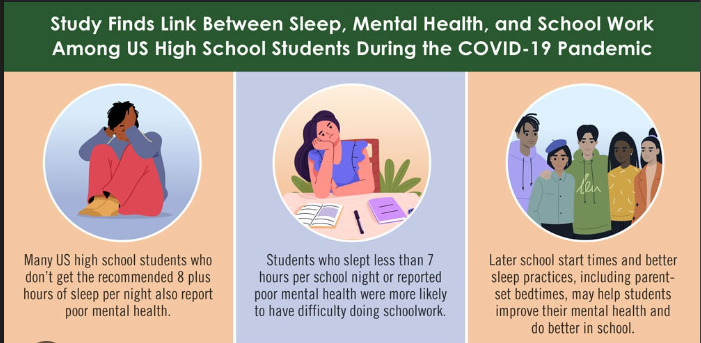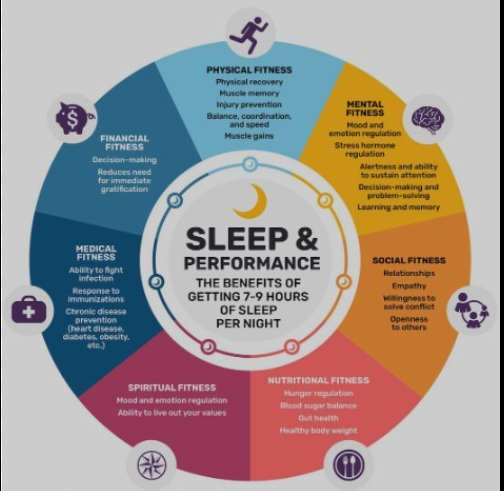Sleep is not just a passive activity; it’s a vital component of our overall well-being. The relationship between sleep and mental health is profound and multi-faceted, influencing everything from mood and cognitive function to emotional regulation and stress levels. In this article, we’ll explore how sleep affects mental health and offer practical strategies for improving your rest to enhance your overall quality of life.
Understanding the Sleep-Mental Health Connection
Sleep plays a critical role in maintaining mental health. During sleep, the brain undergoes various processes that are crucial for emotional and cognitive functioning. These include:
- Restoration and Repair: Sleep allows the brain to repair and restore itself. This process helps consolidate memories, process emotions, and clear out brain waste products.
- Emotional Regulation: Quality sleep is essential for regulating emotions. A lack of sleep can heighten emotional reactivity, making it harder to cope with stress and increasing the risk of mood disorders.
- Cognitive Function: Adequate sleep supports cognitive processes like attention, problem-solving, and decision-making. Sleep deprivation can impair these functions, leading to difficulties in concentration and increased mental fatigue.
- Stress Management: During sleep, the body and mind process stressors and recover from daily challenges. Poor sleep can disrupt this process, making stress harder to manage and increasing vulnerability to mental health issues.

How Sleep Disorders Affect Mental Health
Several sleep disorders can negatively impact mental health:
- Insomnia: Persistent difficulty falling or staying asleep can contribute to symptoms of depression and anxiety. Insomnia can create a vicious cycle where poor sleep exacerbates mental health issues, and these issues further disrupt sleep.
- Sleep Apnea: This condition, characterized by intermittent pauses in breathing during sleep, can lead to chronic sleep deprivation. It has been linked to increased risks of depression and anxiety.
- Restless Leg Syndrome (RLS): This disorder causes uncomfortable sensations in the legs and an uncontrollable urge to move them, which can disrupt sleep and contribute to feelings of irritability and mood swings.
Strategies for Better Rest and Improved Mental Health
Improving sleep quality can have a significant positive impact on mental health. Here are some practical strategies to help you achieve better rest:
- Establish a Consistent Sleep ScheduleGoing to bed and waking up at the same time every day helps regulate your internal clock. This consistency can improve sleep quality and make it easier to fall asleep and wake up feeling refreshed.
- Create a Relaxing Bedtime RoutineDeveloping a calming pre-sleep routine signals your body that it’s time to wind down. Activities like reading, taking a warm bath, or practicing relaxation techniques can help prepare your mind and body for restful sleep.
- Optimize Your Sleep EnvironmentYour sleep environment plays a crucial role in the quality of your rest. Make sure your bedroom is dark, quiet, and cool. Invest in a comfortable mattress and pillows, and eliminate sources of noise and light that could disrupt your sleep.
- Limit Exposure to Screens Before BedThe blue light emitted by phones, tablets, and computers can interfere with the production of melatonin, a hormone that regulates sleep. Try to avoid screens at least an hour before bedtime, or use blue light filters if you must use electronic devices.
- Be Mindful of Food and DrinkAvoid large meals, caffeine, and alcohol close to bedtime. These can disrupt sleep by causing discomfort or stimulating your nervous system. Instead, opt for light snacks if you’re hungry before bed.
- Incorporate Regular Physical ActivityEngaging in regular exercise can promote better sleep and reduce symptoms of anxiety and depression. Aim for at least 30 minutes of moderate exercise most days of the week, but try to avoid vigorous activity too close to bedtime.
- Manage Stress and AnxietyPracticing stress management techniques can improve both your mental health and sleep quality. Consider incorporating mindfulness meditation, deep breathing exercises, or journaling into your daily routine to help manage stress levels.
- Seek Professional Help if NeededIf you’re struggling with sleep despite trying these strategies, it may be time to seek professional help. A healthcare provider or sleep specialist can diagnose sleep disorders and recommend appropriate treatments, such as cognitive behavioral therapy for insomnia (CBT-I) or other interventions.
- Monitor Your Sleep PatternsKeeping a sleep diary can help identify patterns and potential issues affecting your sleep. Record details such as your sleep and wake times, sleep quality, and any factors that might be influencing your rest. This information can be valuable for discussing sleep concerns with a healthcare provider.
- Focus on Overall Well-beingMaintaining a balanced lifestyle that includes healthy eating, regular exercise, and social connections can support better sleep and mental health. A holistic approach to well-being can enhance your overall quality of life and contribute to more restful sleep.

Read More : Understanding and Preventing Chronic Diseases: A Comprehensive Guide
Conclusion
The impact of sleep on mental health is undeniable. Quality sleep supports emotional regulation, cognitive function, and stress management, all of which are essential for maintaining good mental health. By implementing strategies such as establishing a consistent sleep schedule, creating a relaxing bedtime routine, and managing stress, you can improve your sleep and, consequently, your overall well-being.
Prioritizing sleep is a crucial step towards better mental health and a more balanced, fulfilling life. If sleep issues persist, don’t hesitate to seek professional guidance to address any underlying problems and get the support you need for a healthier, more restful life.

Leave a comment